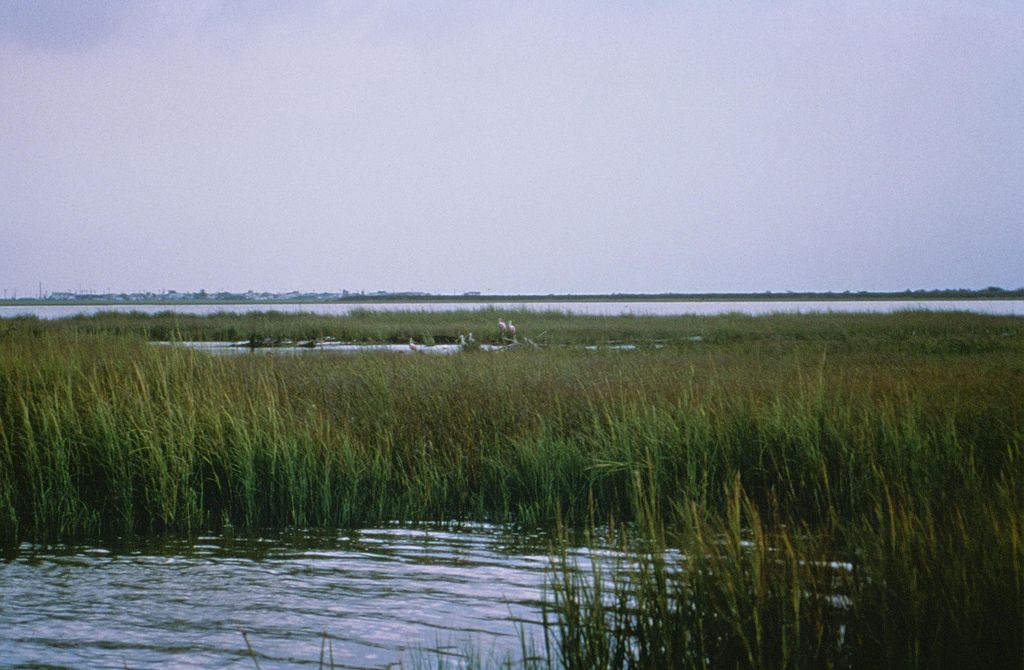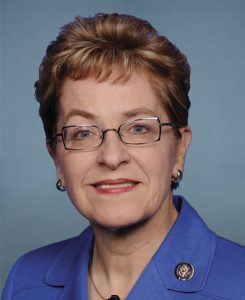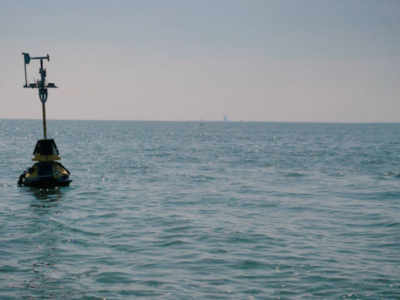
Michigan’s EGLE remains “committed to protecting Great Lakes ecosystem”
The Trump administration’s recent repeal and replacement of the Obama-era Clean Water Rule was met with a sharp rebuke in Ohio last week as U.S. Rep. Marcy Kaptur took to social media to challenge the administration.
“The Trump Administration has changed course on years of environmental protection to open the spigot and allow major corporations to freely pollute our streams and major waterways – including our Great Lakes,” Kaptur said.
Kaptur called the move a “cave to our country’s most egregious polluters” and said Lake Erie’s problems, including harmful algae blooms, would likely worsen.
Kaptur’s congressional district stretches from Toledo to approaching Cleveland, bordering Lake Erie.
President Obama’s 2015 rule “impermissibly expanded the definition of the waters of the United States under the Clean Water Act,” the U.S. Environmental Protection Agency working with the Army Corps of Engineers, said in a press release announcing its repeal and replace move.
The action returns that definition to pre-2015 status and will facilitate implementation of the agency’s proposed December 2018 replacement rule that “would clearly define where federal jurisdiction begins and ends in accordance with the Clean Water Act and Supreme Court precedent,” the agencies said.
Repeal and replacement of the 2015 rule had broad support from farm bureaus that feared the rule encroached on their right to manage farmland. Nutrient runoff from farms is the leading cause of algae blooms in Lake Erie.
Environmental groups have strongly opposed ditching the Obama rule, saying it was the product of 400 stakeholder meetings and a million public comments.
“Repealing the Clean Water Rule is reckless, harmful and defies science. It will set us back nearly half a century,” said Peter Bucher, water resources director for the Ohio Environmental Council in a statement.
The 2015 rule provides drinking water safeguards for one in two Ohioans, according to the council.
Michigan wetlands “at risk”
About a half million acres of wetland and 4,200 lakes are at risk in Michigan,” based on the new Trump administration rule, said Central Michigan University wetland expert Don Uzarski.
Uzarski oversees a $20 million federal Great Lakes region monitoring program for the U.S. EPA.
“The short term advantage of developing these systems will be far offset by the loss of ecosystem services that they provide. A large part of Michigan’s economy is driven by the abundance of clean water, and this rule puts that at risk,” Uzarski said.
The public does not generally associate wetlands with large urban areas like Chicago, with its outdated and over-capacity infrastructure, but they are important, according to Uzarski.
“Wetlands provide floodwater storage and increase water quality locally,” Uzarski said, citing protection from runoff from impervious surfaces that carry pollution to local waters.
Because Michigan is one of two states allowed to run its own wetland program “we won’t see any immediate impact to our regulatory scheme,” Department of Environment, Great Lakes and Energy spokesperson Hugh McDiarmid said.
In the long-term, significant changes to federal regulatory practices could impact Michigan, according to McDiarmid, who said he expects lengthy legal challenges to the recent federal action.
“While the Trump administration continues its efforts to roll back important environmental safeguards, Michigan remains committed to protecting the Great Lakes ecosystem,” McDiarmid said.
“Michigan legislation tends to move toward not being more strict than federal law,” said Central Michigan’s Uzarski.
The Michigan Chamber of Commerce supports the Trump administration action and repeal of the Obama rule, calling it “a classic example of sweeping over-reach by non-elected federal bureaucrats,” according to a Michigan Radio report.
The Ohio Chamber of Commerce declined to comment.
Michigan Sen. Debbie Stabenow, Ohio Sen. Rob Portman and Michigan Rep. Bill Huizenga, who in addition to Ohio’s Kaptur are in leadership roles on the bi-partisan Congressional Great Lakes Task Force, did not respond to requests for comment. A spokesperson for Michigan Sen. Gary Peters declined to comment.
“With many of our cities and towns living with unsafe drinking water, now is not the time to cut back on clean water enforcement,” said Laura Rubin, director of the Healing Our Waters-Great Lakes Coalition, in a statement.
Coalition spokesperson Jordan Lubetkin declined to identify specific impacts on the Great Lakes region by rollback of the rule, saying that its focus is more on big-picture advocacy.
The coalition’s primary advocacy work is to secure federal funding for Great Lakes restoration and clean water programs in the region. .
Since taking office in 2017, in addition to repealing the Clean Water Rule, the Trump administration has sought to roll back auto fuel economy standards and the Clean Power Plan, which was also the centerpiece of the Obama administration’s climate change carbon reduction program.
All are in various stages of legal challenges.





